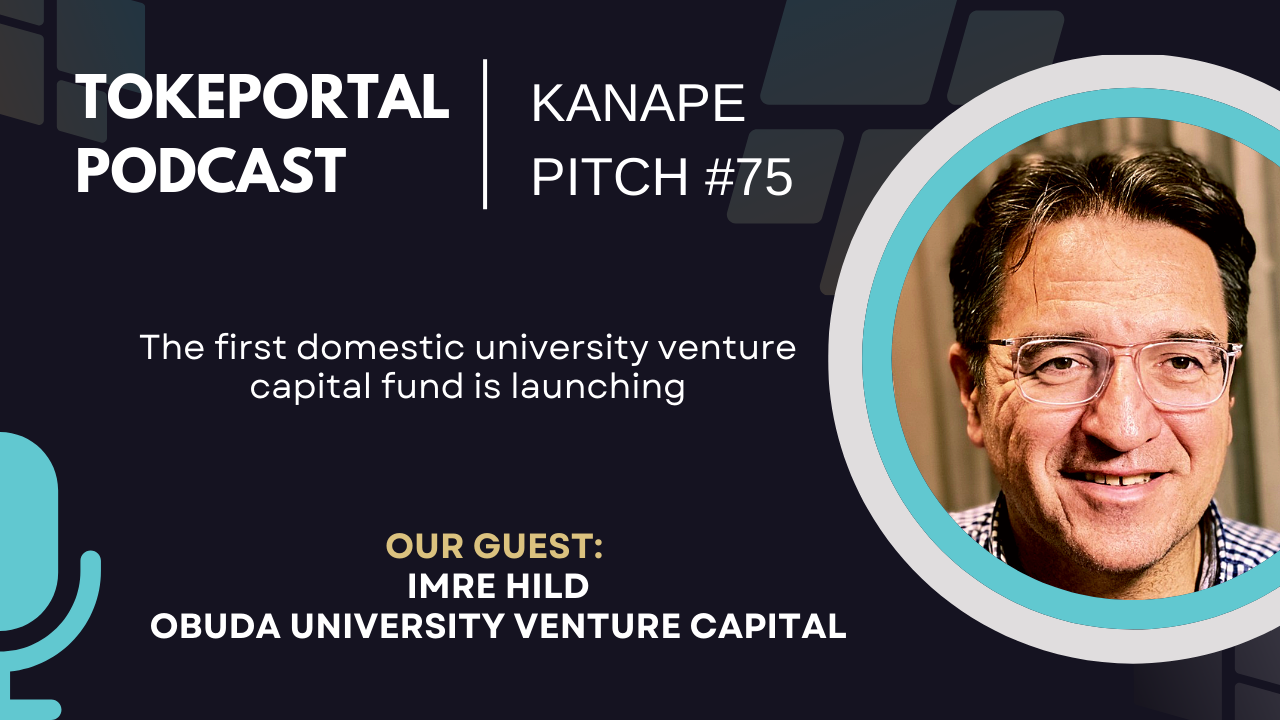Imre Hild: the first domestic university venture capital fund is launching. I Tokeportal.com Podcast Series 75
Tokeportal.com own content, 15.09.2023
In the latest episode of the Kanapé Podcast series, our guest is Imre Hild, our key mentor, Mentor of the Year 2022, a cornerstone member, and the all-knowing force behind the domestic startup ecosystem. As revealed in yesterday’s announcement, Imre, in collaboration with Óbuda University and the Széchenyi Venture Capital Fund, has reached a milestone on the path of development of the domestic ecosystem.

The ÓUVC, thanks to the Rudolf Kálmán Óbuda University Foundation, Óbuda University, and the Széchenyi Venture Capital Fund, was established as the first significant-sized Hungarian university venture capital fund company and venture studio. They start with a capital of 10 billion HUF (=26 035 000 EUR) and plan to invest in at least 60 companies over five years, with ticket sizes ranging from 20 to 300 million HUF (52 000 – 781 000 EUR). The primary investment areas are AI, deep tech, green energy, and robotics. Although they primarily aim to support ventures related to Óbuda University, startups from other universities can also apply. Their goal is to provide startups not only with funding but also with business development and other services. ÓUVC’s activities are yield-oriented, and they involve the university community in the process of building and developing businesses. Their main objective is to realize a successful Venture Studio model.
The following topics are discussed in the conversation:
Time is money, especially in the field of investments. The goal of ÓUVC is to convert time into an investment. Both investors and startups need a simple, fast, and transparent process. Prolonged negotiations and unknown factors can be detrimental to both parties. ÓUVC aims to help both parties quickly get to the essence, reach agreements, and move on to the next steps – even within just one month.
Swift decision-making, transparency, and mutual respect are significant values in the startup investment arena. Imre once had a video series where he mentioned that in London, good startups secure funding within two weeks. While London has a high density of investors, speed, efficiency, and clear communication can be advantages for startups everywhere. Startups should compete for investment, and investors should compete for the best startups.
For this kind of flexibility and an entrepreneur-focused approach, serious work is expected. Among the milestones, there won’t only be financial ones, but also milestones related to other activities such as business development, visibility management, and the company’s investment readiness, which can be measured using various internal tools. If there’s no progress, we let go. We make it clear from the beginning that this is Darwinism. If a startup progresses, we may bring in even more support, even double, but if it doesn’t progress, we let it go.
Not long ago, there was news from the UK that even with Brexit, they managed to remain competitive, especially in supporting startup investments. They have been leading in this area, and recently, a £1 billion fintech government fund was launched. Through ÓUVC, they aim to offer a good example from Eastern and Central Europe. We are eagerly looking forward to achieving a breakthrough in this market, so there is room for growth.
Of course, I’ve interviewed quite a few people about this. Naturally, alongside enthusiasm, everyone has some degree of skepticism about how this will work. We hope that together we can show everyone that it can be done differently, that this can become a reality not only in Germany, Sweden, Israel but also here. For example, Óbuda University has been collaborating with HSUP for three years, and this collaboration continues. Our contribution is in training and mentoring, which is entirely natural. Additionally, we cooperate with the National Innovation Agency and explore various opportunities for collaboration between universities and startups



